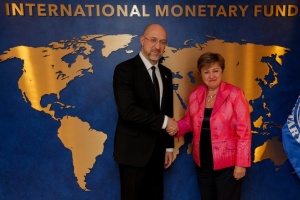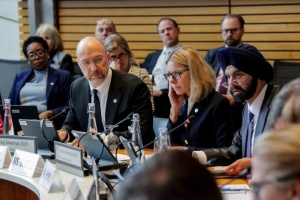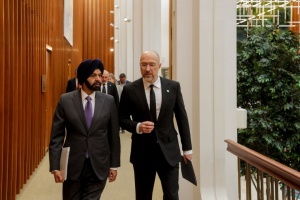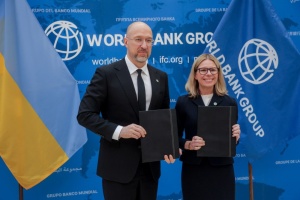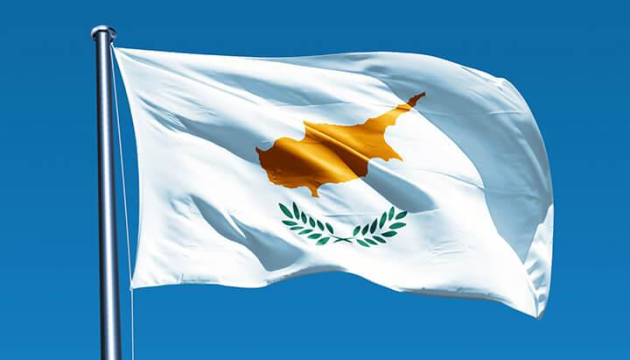
Cyprus accused of laundering sanctioned money from Russia: authorities promise to investigate
According to Ukrinform, this is evidenced by the results of a study by the International Consortium of Investigative Journalists (ICIJ) called Cyprus Confidential. The investigation was published in 68 partner media, including leading French publications.
Cyprus plays an even more important role than has been known in the transfer of dirty money on behalf of Russian President Vladimir Putin and other dictators, the investigation says.
The consortium of journalists claims to have examined confidential documents from six Cypriot financial companies covering the period from the mid-1990s to April 2022, including organizational charts, financial reports, bank account applications, and emails.
As noted, one of these companies, MeritServus, plays a significant role in managing the offshore empire of Roman Abramovich, an influential Russian businessman close to Putin, who owns fourteen trusts in Cyprus and about a hundred companies.
According to the investigation, another company, the Cyprus branch of audit giant PwC, helped Alexei Mordashov, one of Russia's richest oligarchs, transfer more than USD 1.4 billion in assets to his wife in March 2022, the day after he was sanctioned.
On the same day, investigators claim, this company helped two other Russian billionaires, Alexander Abramov and Alexander Frolov, to make an urgent USD 100 million transaction between shell companies, shortly before their assets were frozen.
A total of 96 Russians under international sanctions received assistance from Cypriot service companies, according to the investigation. It is reported that in 2020 alone, more than USD 200 billion of Russian assets were invested in Cyprus. This is half of all Russian investments in Europe.
Among the companies registered in Cyprus, more than 650 were found to be owned or controlled by Russians who have been under sanctions since 2014. That is why the island of 1.3 million inhabitants was named "Moscow in the Mediterranean".
Separately, the report notes the extraordinary activity of Russians under the so-called "Golden Visa" program (obtaining EU citizenship in exchange for investments on the island, mainly in real estate). Despite the fact that Brussels criticizes this policy, Cyprus continues to offer permanent residence permits to Russians in exchange for investments of EUR 300,000.
The authors of the investigation also argue that Cypriot banks are a kind of "gateway" for Russia to the Western economy. Three of the four largest banks on the European island have been involved in money laundering scandals linked to the Kremlin.
Cyprus turned a blind eye to billions of dollars in deposits of unclear origin, Martin Vladimirov, an analyst at the Center for the Study of Democracy, told reporters. The new board of directors of the Bank of Cyprus now includes six Russians, including one of Vladimir Putin's former KGB colleagues.
In turn, the ECB denies that it has not noticed Russian influence in Cyprus. The ECB is the main monetary institution of the EU, which has significant powers, but lacks the function of recording financial crimes. Therefore, the Central Bank of Cyprus (which, according to the investigation, is under the control of a political class saturated with Russian money) is officially responsible for combating money laundering.
For their part, the Cypriot authorities responded to the published facts. Everything that has been discovered will be investigated, and no one is above the reputation of the country, President Nikos Christodoulides said. According to him, Cyprus will investigate alleged violations of sanctions against Russia, and the Cypriot government is unequivocally committed to fighting corruption and illicit financing and is taking all necessary measures to ensure the implementation of EU sanctions.
As Ukrinform reported, in April last year, Cyprus announced that it had taken tough measures against individuals accused by the United States and the United Kingdom of helping Russian oligarchs circumvent sanctions.
The Cyprus Confidential project is the result of eight months of work by more than 270 journalists from 55 countries, during which they analyzed 3.6 million documents from the Cypriot financial sector. The documents were collected, sorted and translated into several languages. They were then distributed to all partners of the consortium, including media in many countries.

